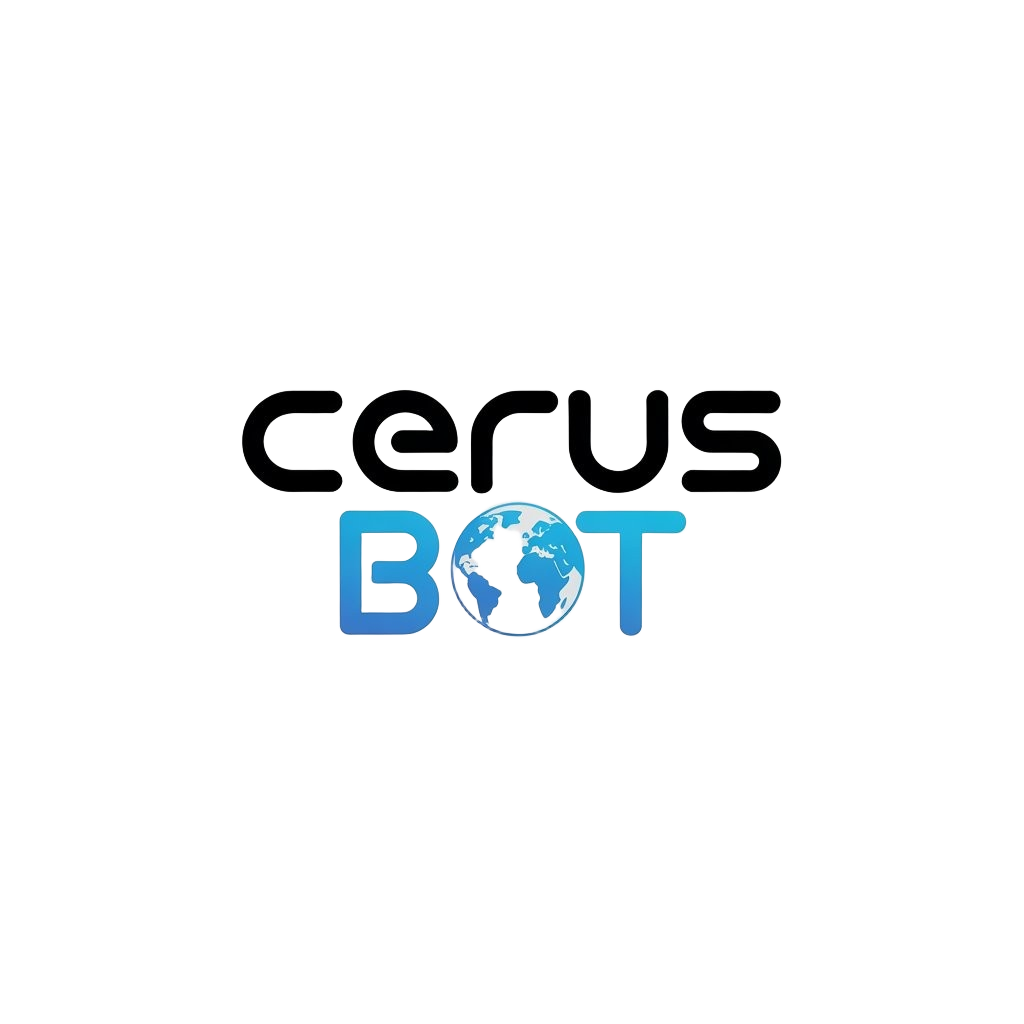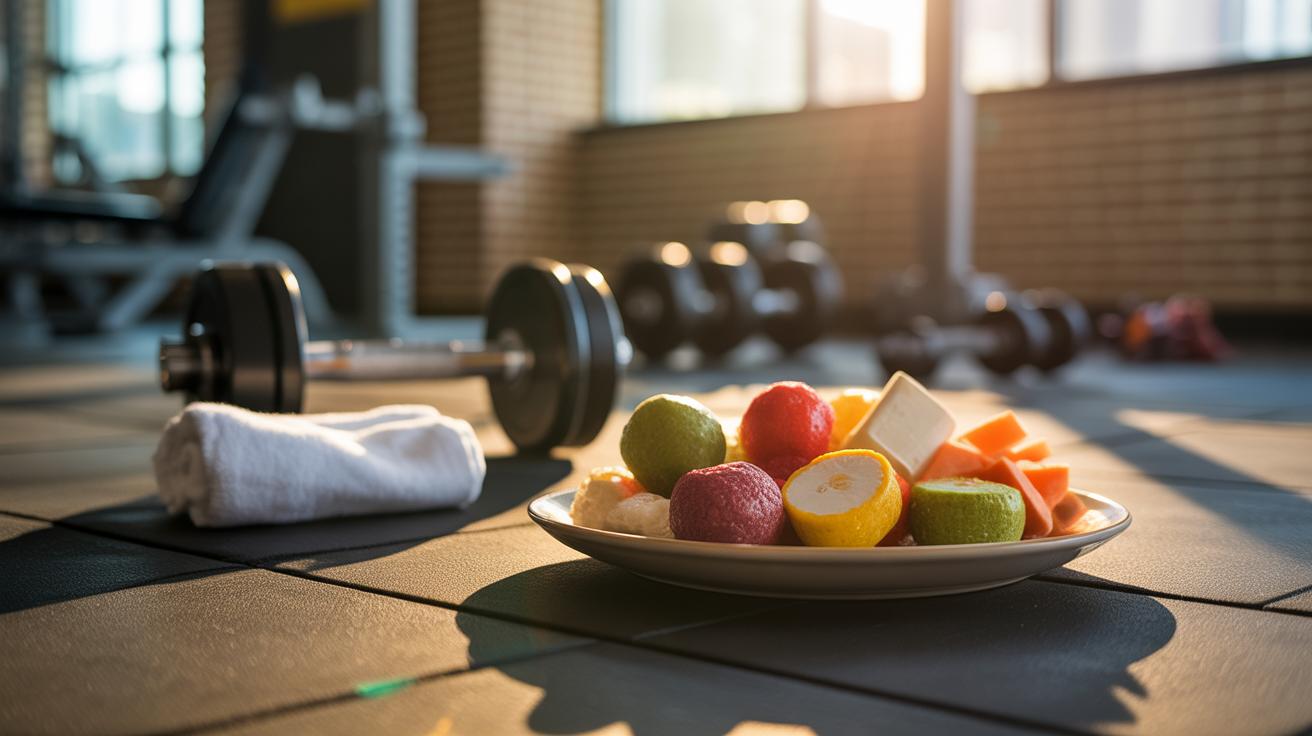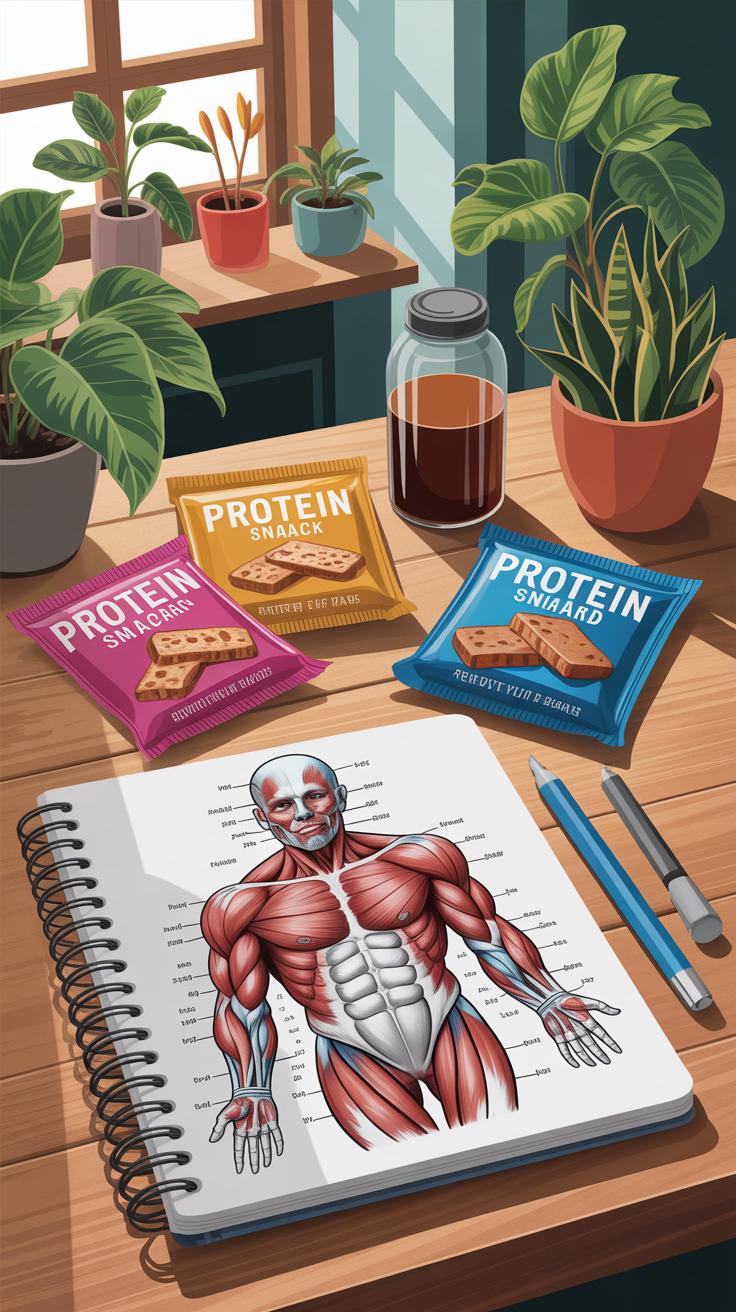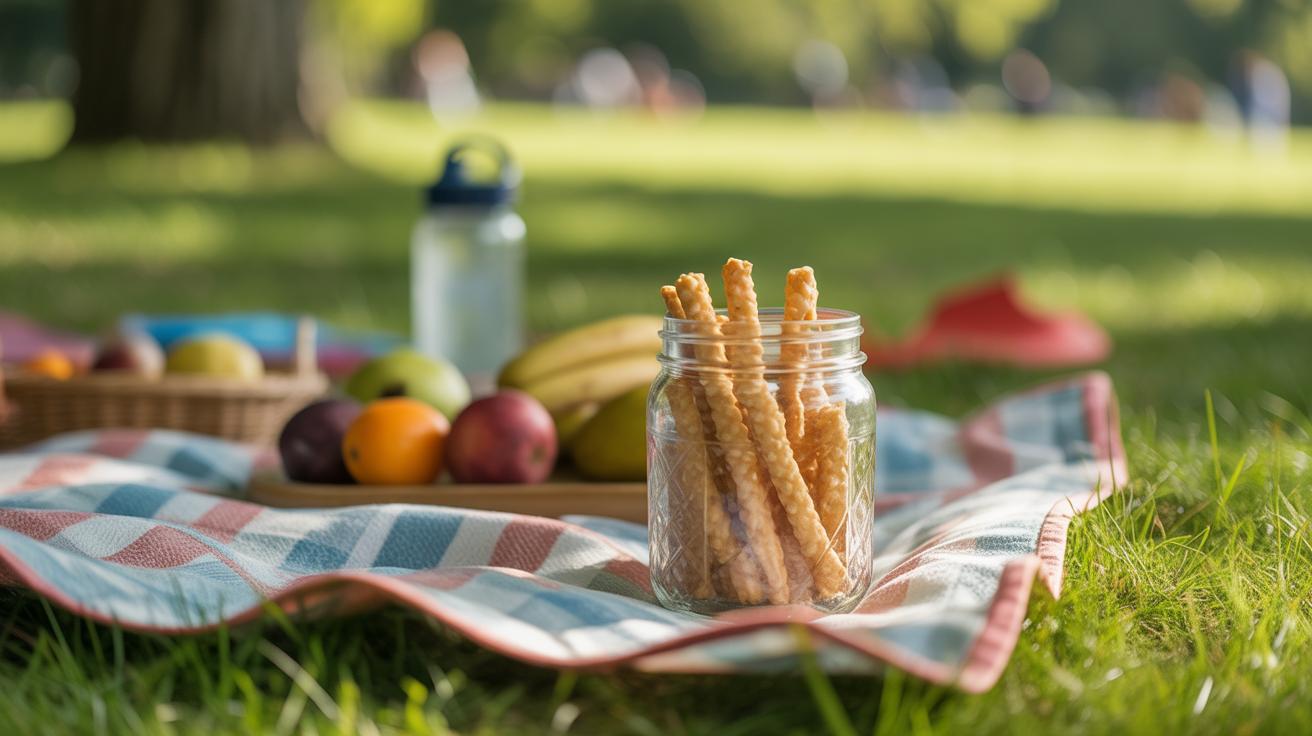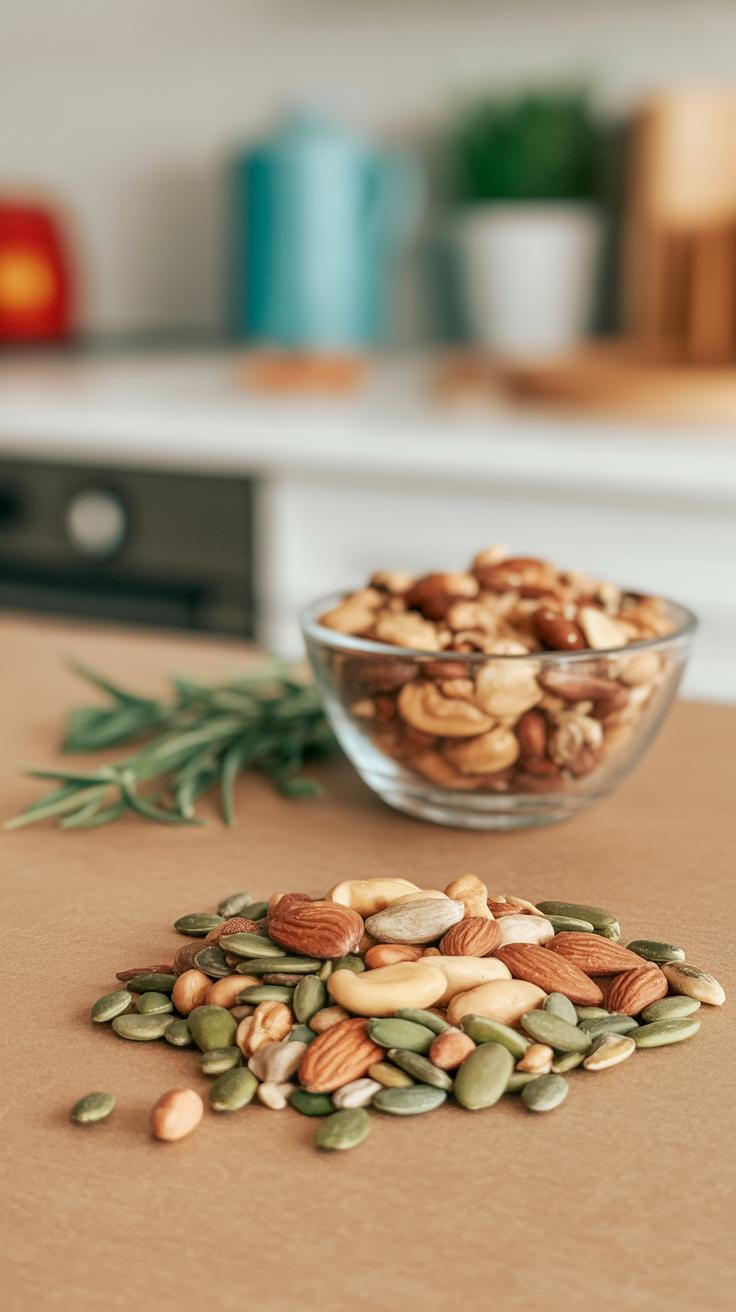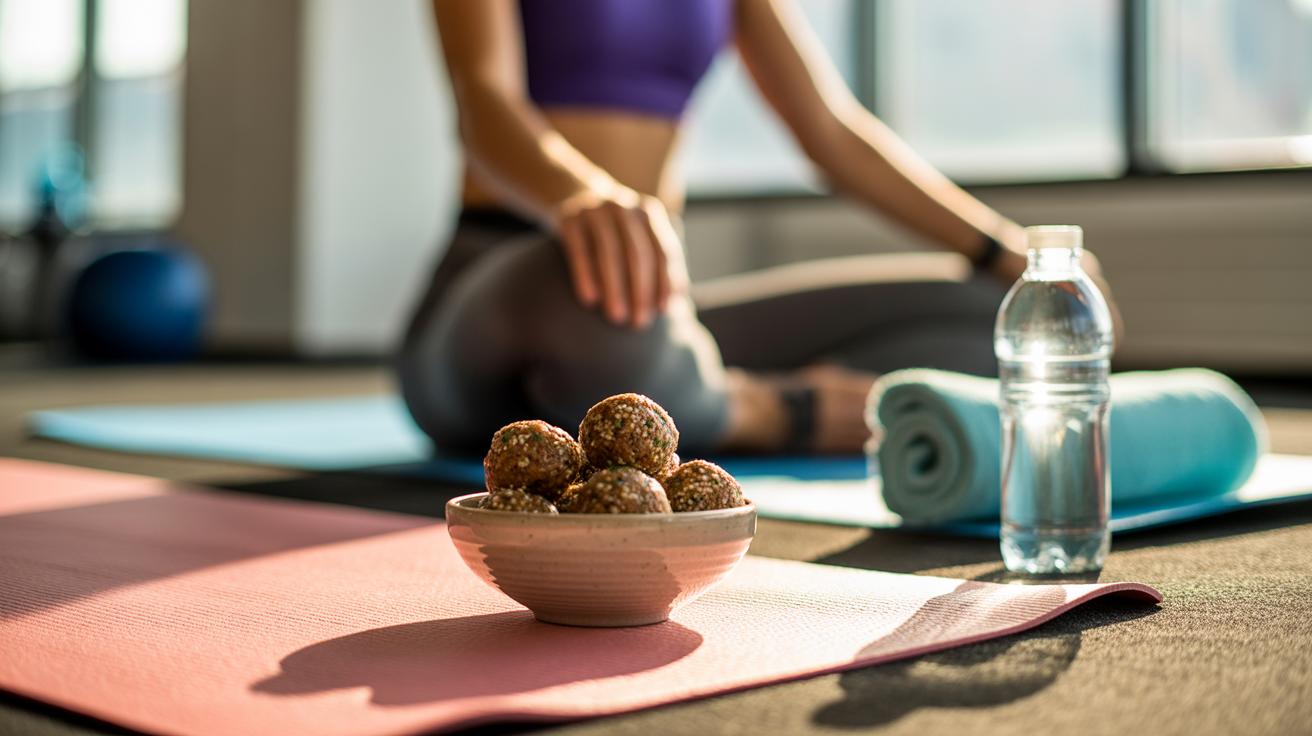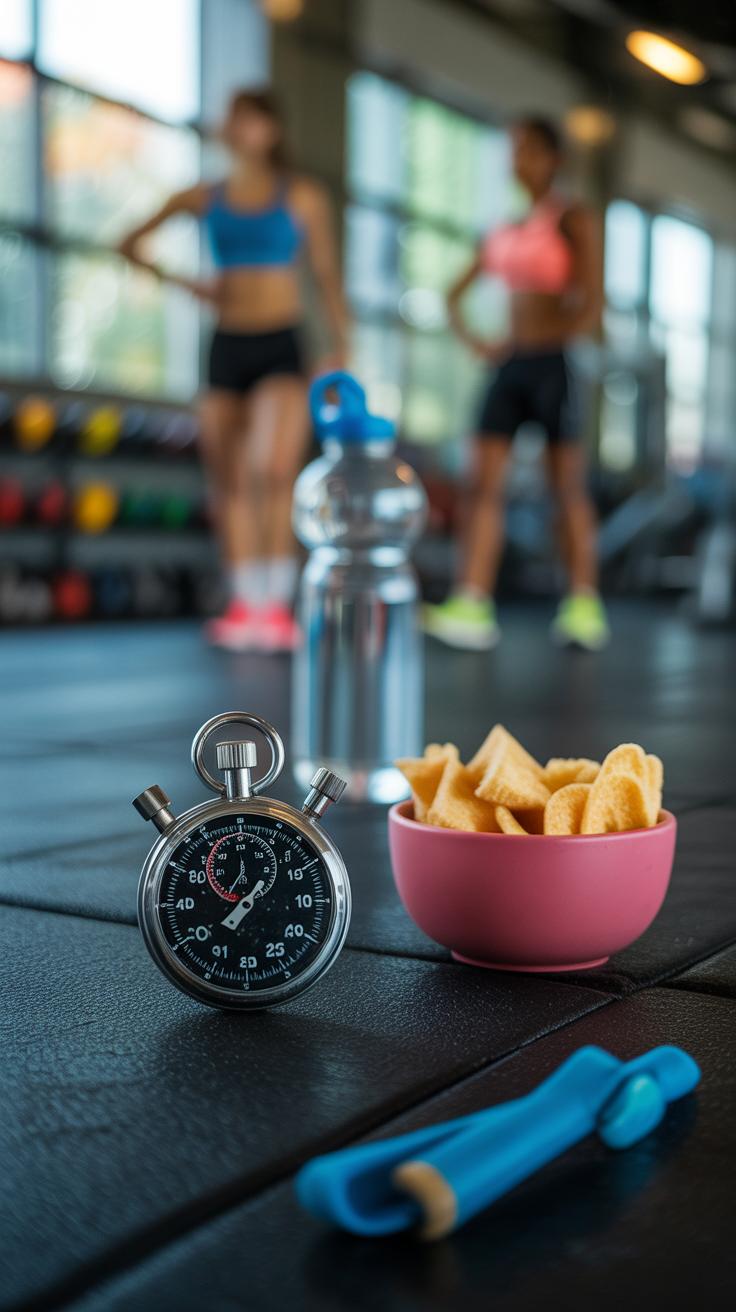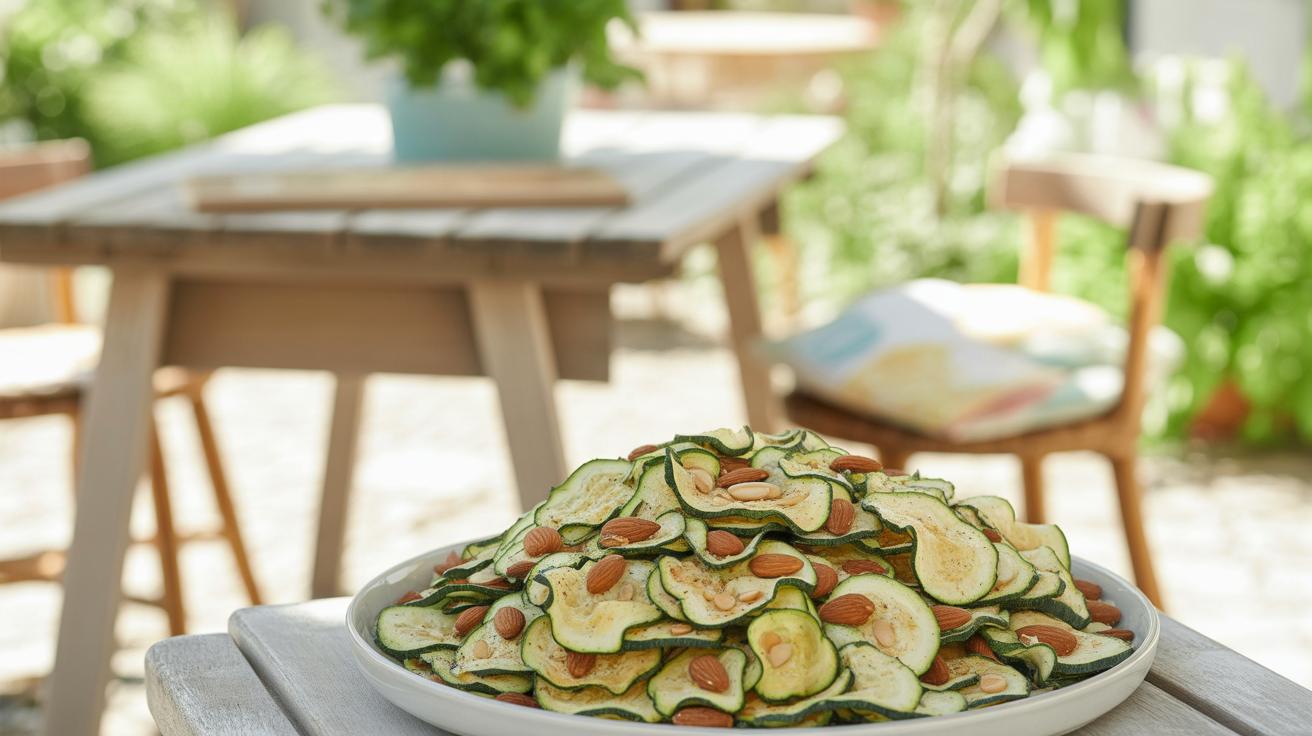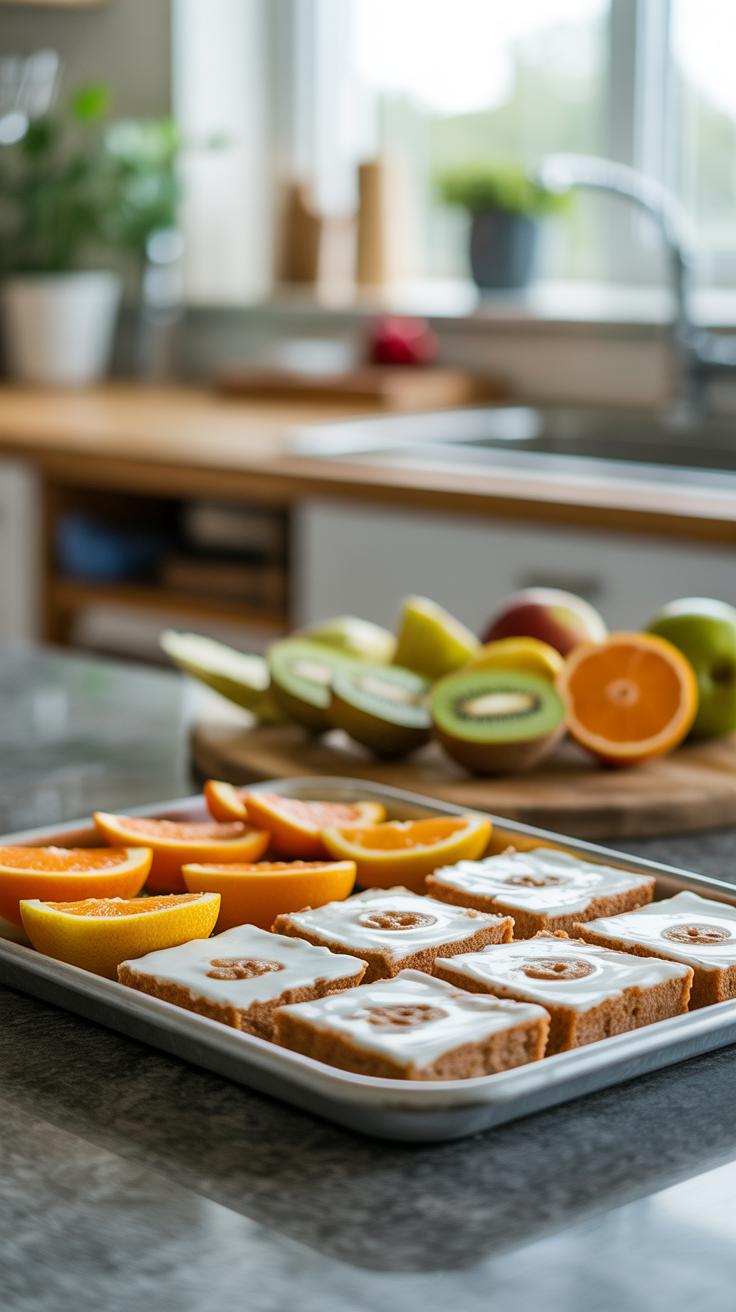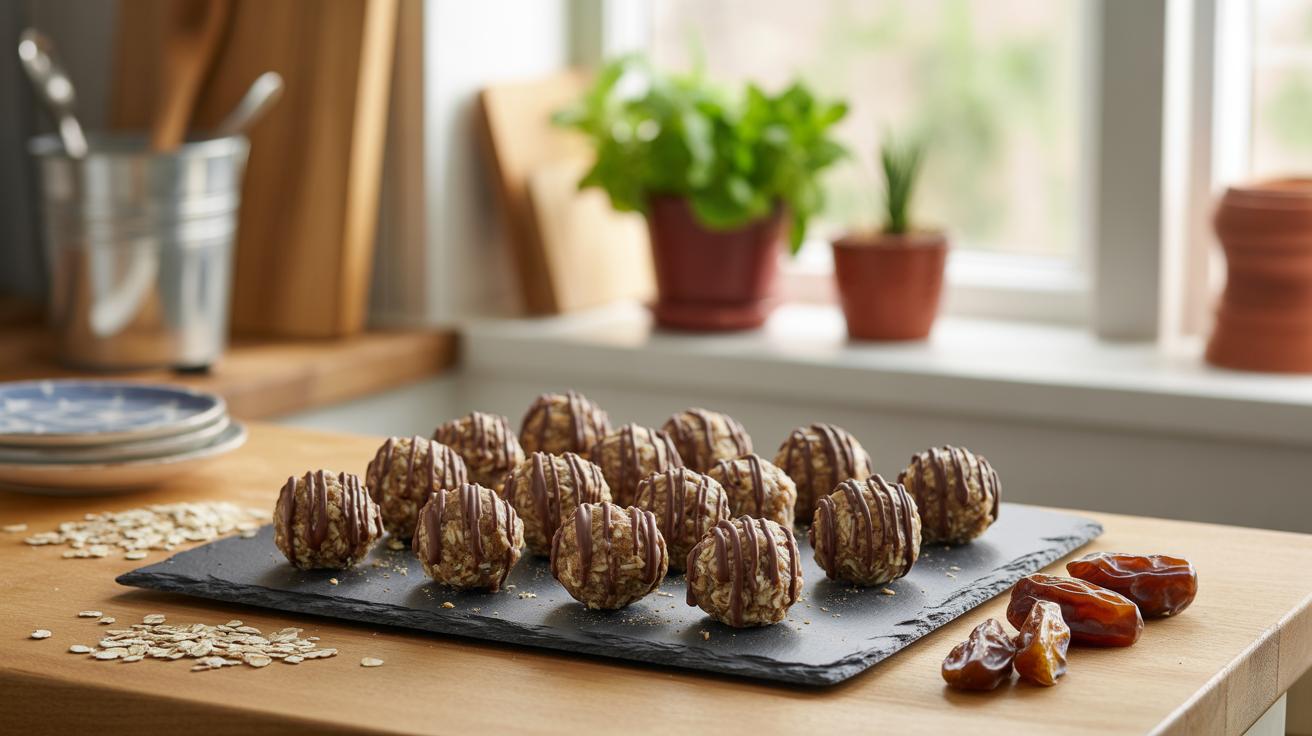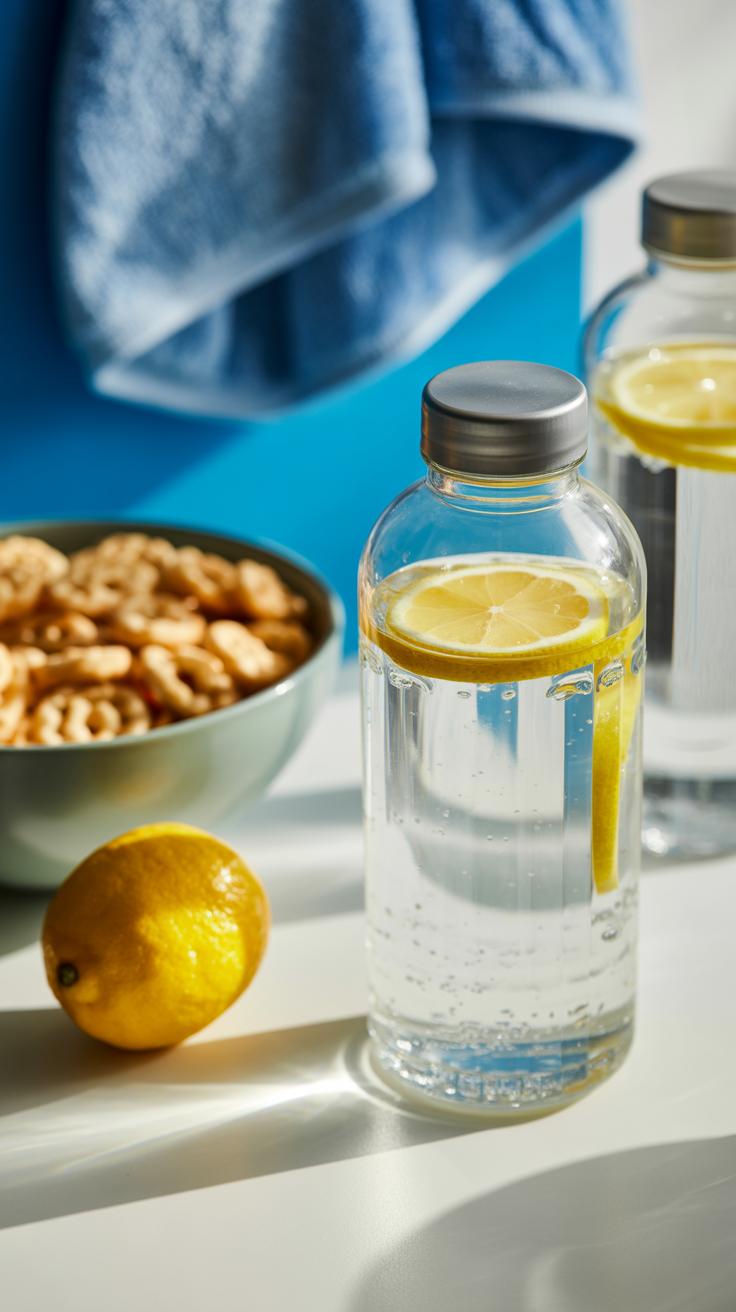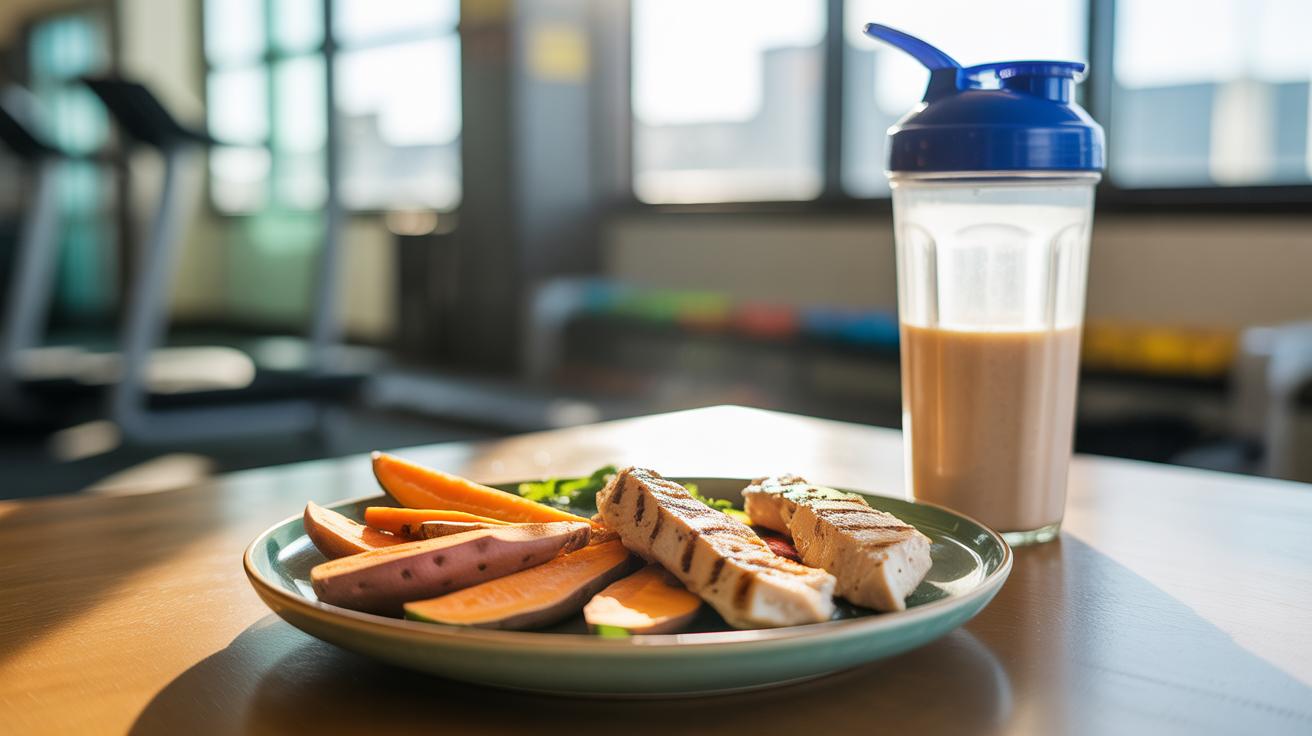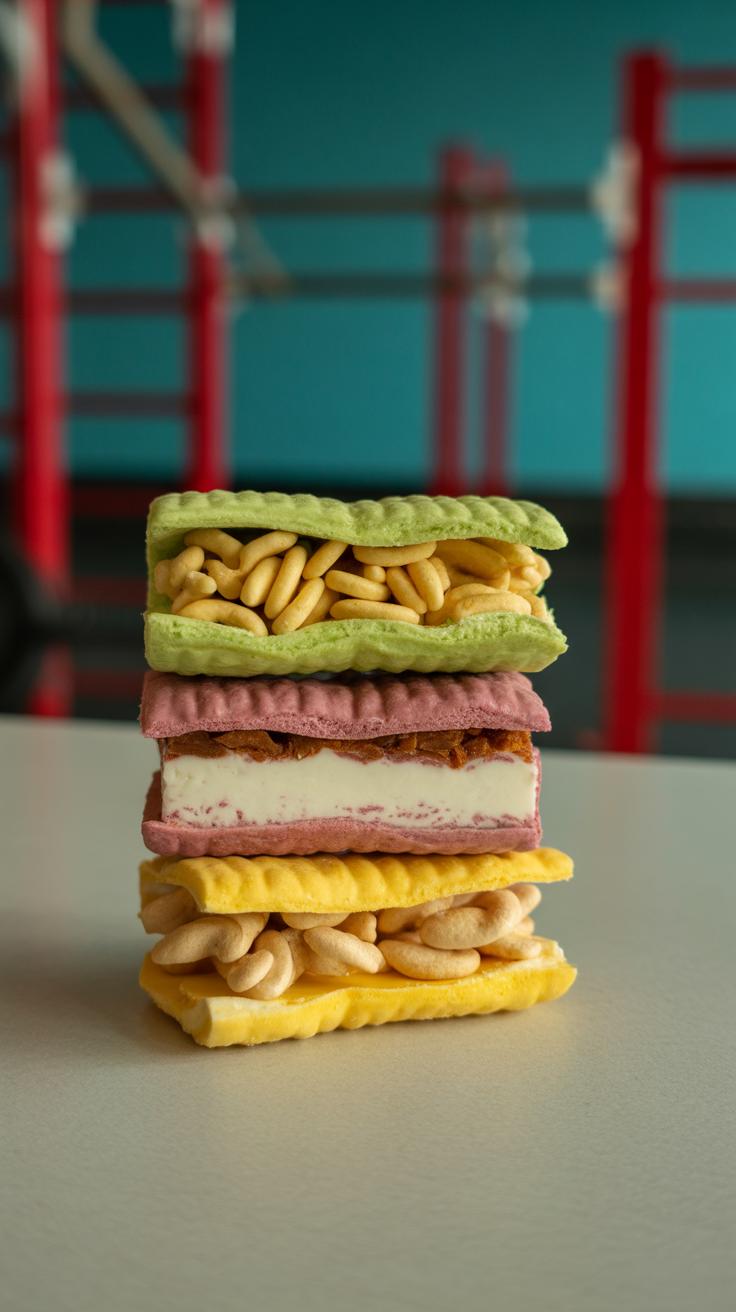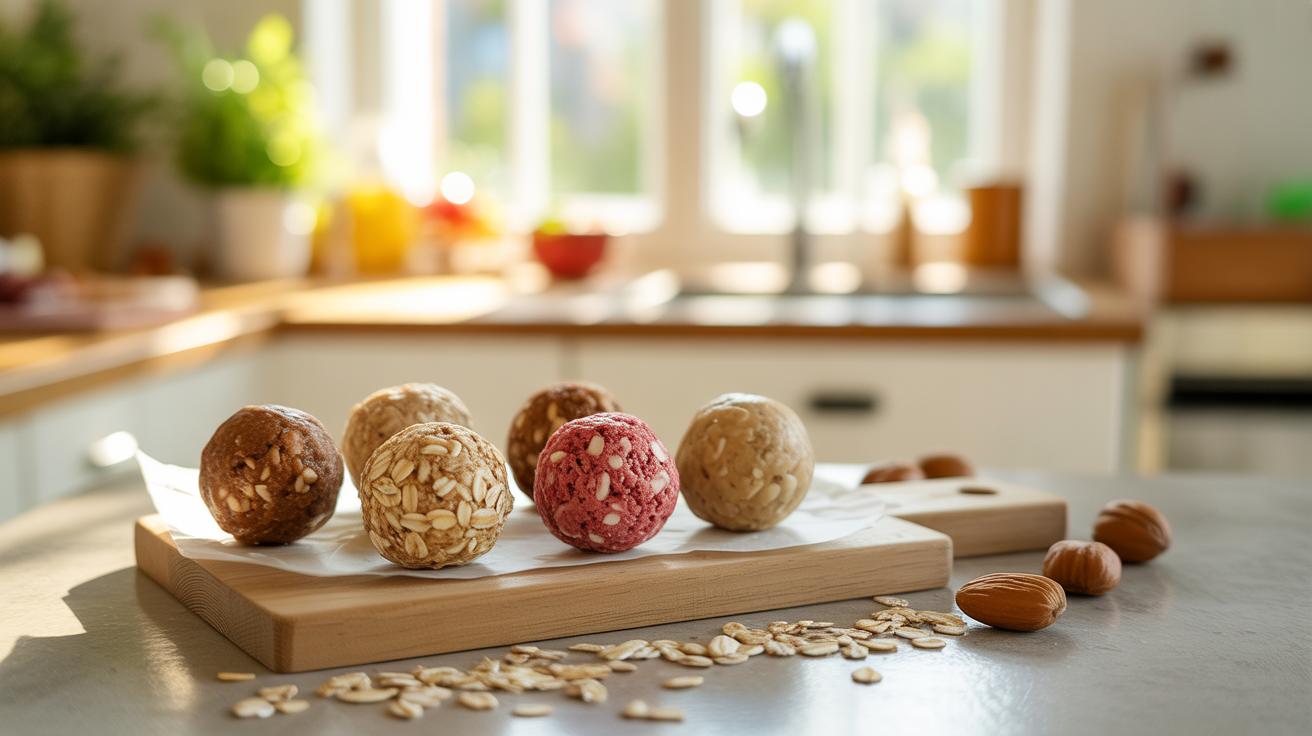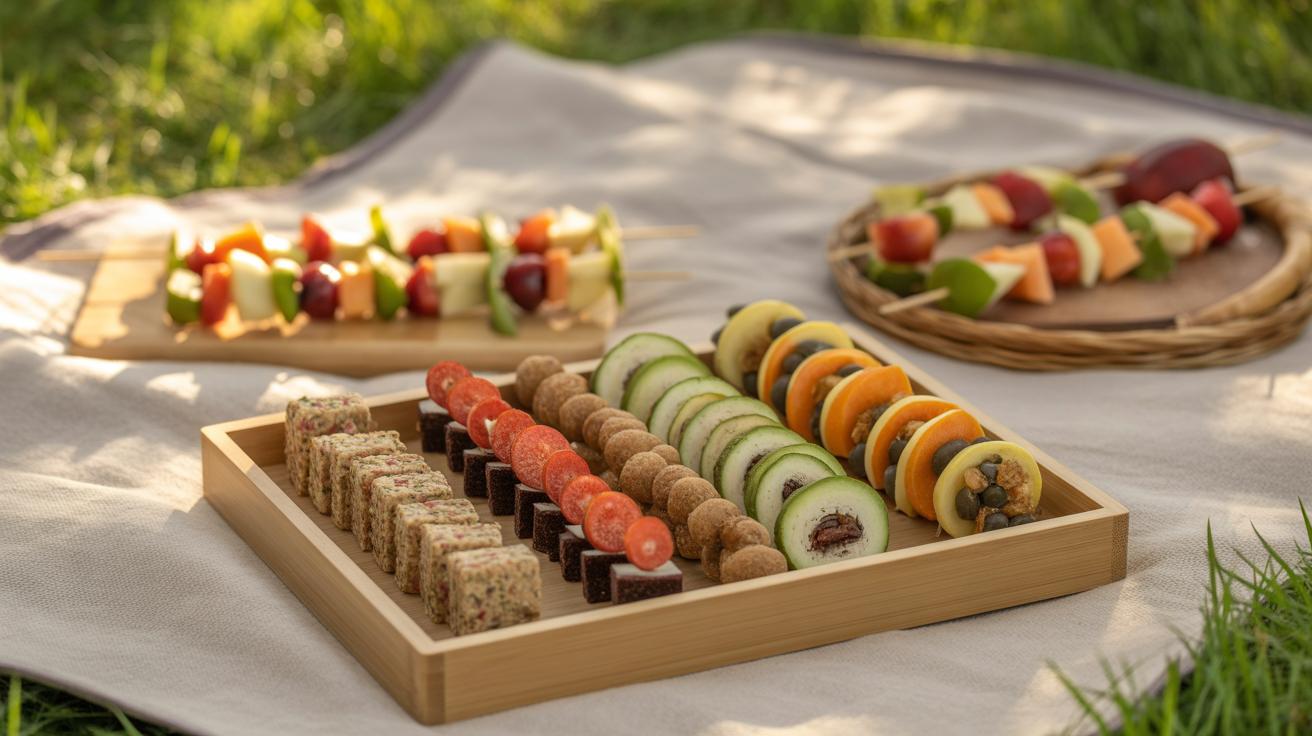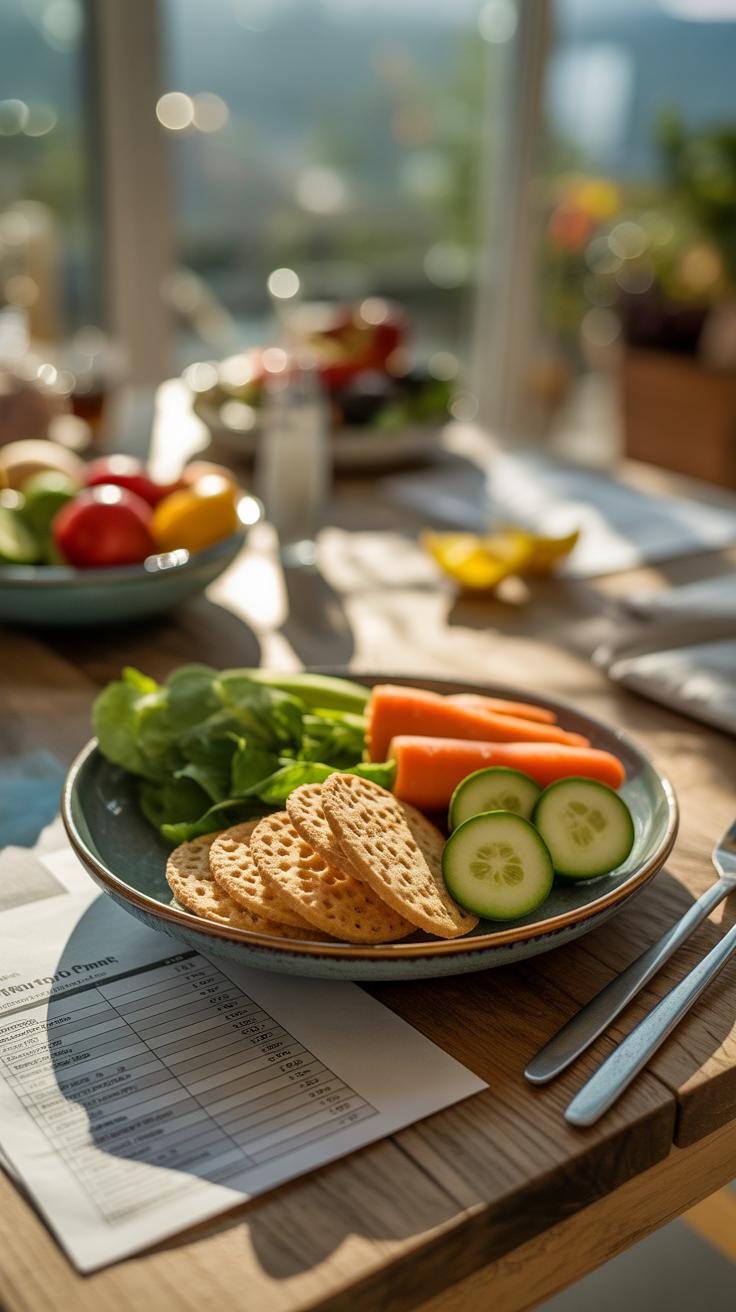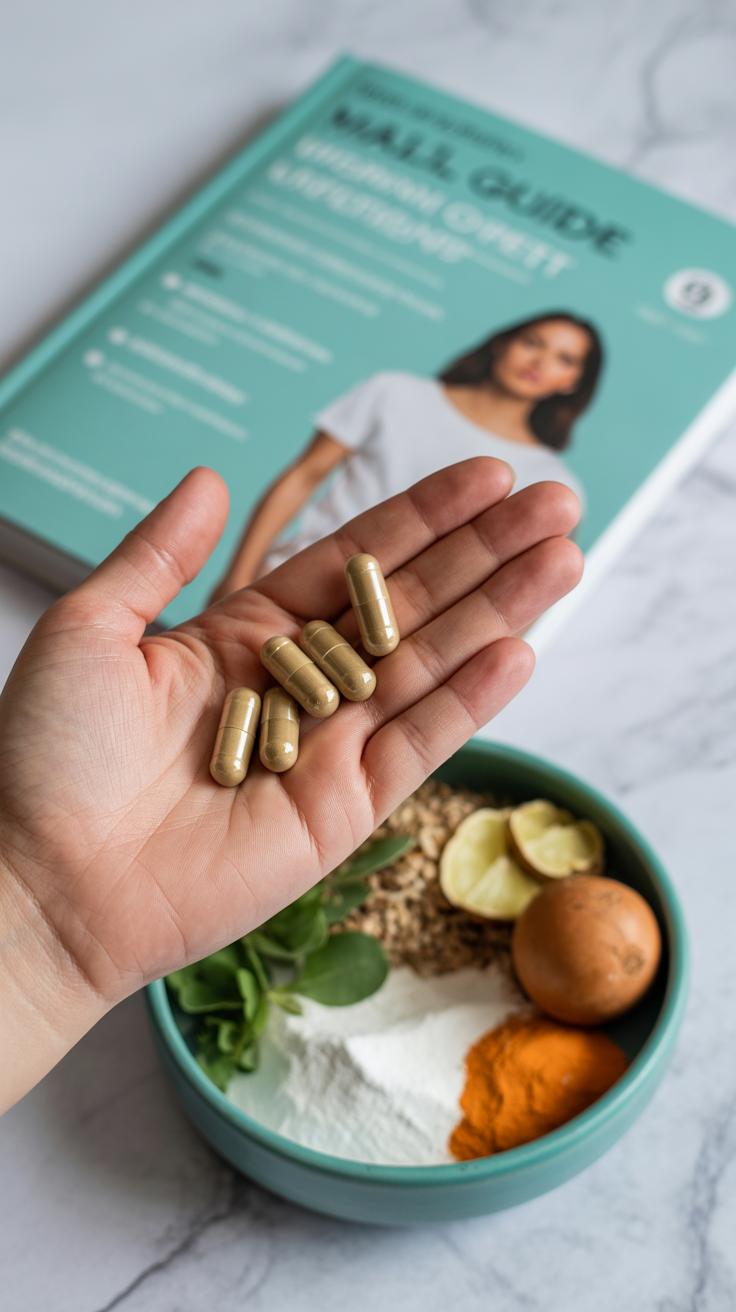Introduction
After a workout, your muscles need fuel to recover and grow stronger. Choosing the right post workout snacks can speed up this process. Best Post Workout Snacks For Muscle Recovery help to replace lost energy, repair muscles, and prepare your body for the next exercise session.
Understanding what makes an effective snack is key. This article will explore the nutrients your body needs after exercise, suggest practical snack ideas, and explain how these snacks support muscle recovery. You will learn how to make smart choices that help you reach your fitness goals faster.
Understanding Muscle Recovery
After you push your muscles through exercise, they don’t just bounce back immediately. There’s a process unfolding beneath the surface, where tiny tears in muscle fibers begin to heal. This repair is actually what leads to stronger muscles over time. You might feel sore or stiff—that’s a sign that your body is hard at work.
Muscle recovery involves multiple stages, including inflammation and rebuilding. Your body floods the affected area with blood to deliver oxygen and nutrients, which kick-starts the healing. But this natural process can’t run at its best without the right support, especially nutrition. If you think of your muscles like a damaged building, food supplies the bricks and mortar needed for reconstruction.
Nutrition after exercise isn’t just about “filling up” or getting calories. It’s about helping your body fix what was stressed and prepare for future workouts. The timing here is often debated, but many find that eating within an hour after training really makes a difference. It’s curious how some overlook this and then wonder why progress stalls.
How Muscles Repair Themselves
During exercise, muscle fibers endure microscopic damage. This damage isn’t a flaw—it’s part of the growth stimulus. Your body responds by starting a biological repair process, which involves satellite cells that multiply and fuse to existing fibers, thickening them or creating new ones.
The inflammation phase might feel annoying—it’s your body’s natural alarm system, drawing resources to the injured area. White blood cells clear out damaged tissues while growth factors signal the muscles to rebuild. It’s a complex interplay of cells and chemicals that isn’t always obvious but crucial.
Some days, you might think rest alone suffices, but without proper nutrients, the repair slows down. The body can’t work miracles without fuel, and muscles might end up weaker or prone to injury if neglected. This cycle of stress and repair is essential, but it demands attention beyond just resting.
Role of Nutrition in Recovery
Protein stands out as the cornerstone nutrient in muscle repair. It provides amino acids—the building blocks for new muscle tissue. But you can’t ignore carbohydrates, either. After exercise, your muscle glycogen gets depleted. If you skip carbs post-workout, recovery drags on, and energy stores stay low for the next session.
Combining protein and carbs post-exercise encourages insulin release, which helps shuttle nutrients into muscle cells faster. I’ve noticed when I focus just on protein, I sometimes feel sluggish returning to training. But balance the two, and recovery seems smoother.
Fat has a less direct but relevant role. It doesn’t interfere with the repair process and supports overall energy needs. Still, it’s better not to rely on fats alone in recovery snacks since they slow digestion and the delivery of other key nutrients.
So next time you plan your post-workout snack, think not just about taste or convenience but what your muscles need to bounce back smarter and quicker.
Key Nutrients For Recovery Snacks
After a workout, your body needs certain nutrients to repair muscles and restore energy. Among these, protein plays a crucial role. Protein provides amino acids—the building blocks your muscles rely on to heal the tiny tears caused by exercise. Without enough protein, repair slows down, and soreness might linger longer than you want. Think about snacks like Greek yogurt, hard-boiled eggs, or a protein shake; these deliver concentrated protein that’s easy to digest and gets to work quickly.
Carbohydrates also deserve your attention. They’re the primary source of energy your body burns during exercise, so after sweating it out, your glycogen stores need topping up. Without carbs, recovery could drag, and fatigue may creep in faster the next day. Simple carbs like fruit or whole-grain crackers with nut butter can help replenish energy while keeping blood sugar stable. It’s a balancing act—you want carbs that refuel but don’t overwhelm your system.
That leaves you with a couple of essentials for your post-workout snack: enough protein to rebuild, and carbs that revive your energy. Sometimes fats find a place here too, but their role is less immediate in muscle repair. Have you noticed how combining a banana with a spoonful of peanut butter seems to hit both points? It’s practical and effective, even if it’s nothing fancy.
Timing Your Post Workout Snack
The Recovery Window
When you eat after a workout can be just as important as what you eat. There’s a sort of “recovery window” that many fitness enthusiasts talk about, usually said to be within 30 to 60 minutes after exercise. This period is when your muscles are particularly receptive to nutrients, helping to jumpstart repair and replenish energy stores.
But is it a strict deadline? Probably not. Some studies suggest that you might have a bit more leeway—say up to two hours—to refuel without losing much benefit. It can depend on how intense your workout was or when you last ate before exercising. If your pre-workout meal was a while ago, sooner might be better.
Personally, I’ve noticed that grabbing a snack right after training helps me feel less sore the next day. Though, I’ve also had days when I delayed and didn’t feel that much difference. So, it feels a little flexible, but aiming to eat sooner rather than later usually works well.
Planning Snack Around Your Schedule
Figuring out when to eat can be tricky if your day is busy or unpredictable. Maybe you workout early before breakfast or late at night after dinner. You might wonder how to fit in a post workout snack without throwing off your whole day.
Here are some practical tips:
- Keep portable options handy, like a handful of nuts or a protein bar, so you can eat right after your session, even on the go.
- If you train early, try a small snack before exercise to boost performance and then a more substantial snack afterward. That might work better than waiting until a big meal.
- When workouts end close to mealtime, consider combining your post workout refuel with your next main meal, focusing on the key nutrients needed for recovery.
- Listen to your body. Sometimes the hunger signal arrives later, and if it’s within a reasonable timeframe, it should be fine to wait.
At times, strict timing feels idealistic. Life’s unpredictable. Just do your best to fit in a recovery snack within a window that suits your lifestyle—and that might vary day to day.
Simple Snack Ideas For Muscle Recovery
Finding the right post-workout snack doesn’t have to be complicated. Ideally, you want something that’s easy to prepare or grab, combining protein and carbohydrates to help your muscles bounce back faster. The balance of these nutrients supports repair and replenishes energy stores.
Here are some quick homemade options you might try: a small bowl of Greek yogurt with honey and granola; peanut butter spread on whole grain toast; or a smoothie blending whey protein, a banana, and some oats. These snacks hit the mark because they mix protein with carbs without much fuss or time commitment. Sometimes I prefer a boiled egg paired with an apple—simple, but effective for muscle repair.
Store-bought snacks come in handy when you’re short on time or on the go. Look for options like protein bars with low sugar content, ready-to-drink protein shakes, cottage cheese cups, or even pre-packaged nut and dried fruit mixes. These offer the right nutrients, but you may want to read labels carefully as not all options support recovery equally well. Ever noticed some bars are packed with filler carbs and little actual protein?
Choosing your post-workout snack really depends on what suits your taste and lifestyle. The key is to keep it accessible so you actually eat it soon after exercising. After all, muscle repair benefits from timely nourishment—but it still has to be something you don’t mind eating regularly.
Hydration And Muscle Recovery
Hydration plays a crucial role when it comes to muscle recovery after a workout. You might not always notice it, but your muscles really depend on proper fluid balance to function and repair themselves. When you exercise, your body loses water and electrolytes through sweat, which can slow down recovery if not replenished. Staying hydrated helps transport nutrients like amino acids to damaged muscle tissue, supporting the repair process.
Water and Electrolytes
Water forms the foundation of hydration. Without enough of it, your muscles can cramp, feel fatigued, or just not bounce back as well. Electrolytes—minerals like sodium, potassium, calcium, and magnesium—help regulate muscle contractions and nerve signals. They also maintain fluid balance inside and outside of your cells. Losing them during heavy sweating can disrupt this balance, making proper electrolyte intake essential to recovery. Think of water and electrolytes as a team; one without the other falls short in helping muscles repair efficiently.
Hydrating Drinks To Consider
Choosing the right drinks post-workout depends partly on your sweat rate and workout intensity. Plain water is often enough if your session wasn’t too intense or long. But if you’ve sweated a lot, drinks that provide electrolytes can be smarter.
- Coconut water: It has natural electrolytes like potassium and magnesium along with some carbs—good for mild to moderate sweat loss.
- Sports drinks: Designed to replenish sodium and potassium, plus provide quick energy from sugars. These are handy after intense or lengthy exercise but watch for extra added sugars.
- Chocolate milk: Surprisingly, this offers both fluids and nutrients like protein and carbs, which help muscle repair and rehydration at once.
- Herbal teas or infused water: They can encourage you to drink more while adding subtle flavors without extra sugars or additives.
Water alone might seem simple, but balancing it with electrolytes can make a difference in how quickly your muscles recover. Sometimes, it’s a bit trial and error—what works best can vary between people and workouts. Have you noticed a difference when drinking plain water versus something with electrolytes after tough sessions? It’s worth paying attention to your body’s signals.
Snacking Strategies For Different Workout Types
Not every workout is the same, so your post workout snack shouldn’t be either. What you eat after strength training might feel off after a long run, and vice versa. It’s about matching the snack to the kind of muscle stress you put your body through.
For strength workouts, your muscles need raw materials to rebuild those tiny tears from lifting weights or resistance work. Think protein-rich snacks combined with some carbs to refill energy stores. Something like Greek yogurt with honey or a turkey sandwich on whole grain bread can work well.
After cardio sessions like running or cycling, your muscles haven’t just been stressed—they’ve burned a lot of fuel. Here, a focus on quicker carbs joined with light protein helps speed recovery. A banana with peanut butter or a smoothie with fruit and a scoop of protein powder fits the bill nicely.
So, do you focus first on proteins or carbs? I think it depends on how intense or long your workout was. Sometimes a small carb hit is all you need post-cardio before a better meal later. Other times, weight training demands muscle-building nutrients almost immediately.
Snacks For Strength Training
After lifting weights or doing resistance exercises, your muscles scream for repair. Protein is essential, but carbs shouldn’t be ignored—they refill glycogen from the workout. Some solid snack options include:
- Hard-boiled eggs with a handful of nuts
- Cottage cheese paired with fruit like pineapple or berries
- A protein shake mixed with oats or a banana
- Whole grain toast topped with avocado and a fried egg
These snacks provide a balance: protein to rebuild muscle fibers and carbs to restore energy. I’ve noticed that skipping carbs here tends to leave me dragging during the next workout. Don’t overlook that combo.
Snacks For Cardio Workouts
Cardio workouts tend to deplete your glycogen stores more than they tear muscle fibers, so you want snacks that rapidly replenish energy and help prevent soreness. Some good examples are:
- A fruit smoothie with some protein powder or Greek yogurt
- Rice cakes topped with nut butter and sliced banana
- Oatmeal mixed with chopped nuts and honey
- A small bowl of trail mix with dried fruit
You might wonder if protein is necessary after every cardio session. Honestly, it could be less urgent than after weight training, but some protein still helps prevent muscle breakdown. I usually reach for something light and carb-focused, then eat a fuller meal later. That balance seems to work well.
Common Mistakes To Avoid
Skipping Post Workout Snacks
Skipping a snack right after your workout might seem harmless, but it can actually slow down your recovery quite a bit. After exercise, your muscles have been through stress and need fuel to repair and grow. Without that quick nutrient boost, your body struggles to refill energy stores and start muscle repair, which can leave you feeling sore longer or even impede gains.
Some people think delaying eating until their next meal is fine, but this wait can mean missed opportunities for repair and growth during that crucial recovery window. I’ve noticed, especially on days I skip a post workout snack, my muscles stay tighter and recovery feels slower. Eating something small and balanced soon after exercise makes a noticeable difference.
Try to avoid skipping snacks even if you’re not very hungry. Light choices can do the trick—just enough to kickstart recovery.
Choosing The Wrong Snacks
It’s surprisingly easy to pick snacks that actually hurt muscle repair. Candy bars, chips, or sugary drinks might give you a quick energy hit, but they don’t provide the protein or complex carbohydrates your muscles need. These types of snacks can leave your blood sugar spiking and crashing, which isn’t helpful when you want steady recovery.
Instead, go for snacks that combine protein with some carbs. Things like Greek yogurt with fruit, a small turkey sandwich on whole-grain bread, or a smoothie with protein powder offer nutrients your muscles recognize for repair. I’ve tried random snacks post workout, and when the snack lacks protein, I just feel worn out later, not restored.
Choosing wisely means avoiding empty calories and focusing on nutrient-dense options that actively support muscle rebuilding. So next time, think twice before reaching for that candy bar and maybe grab a handful of nuts or a boiled egg instead.
Balancing Snacks With Overall Diet
Snacks can play a useful role in your muscle recovery, but it’s easy to lose sight of the bigger picture—your overall diet. Think of snacks as small pieces that fill in nutritional gaps. If your main meals are well-rounded with protein, carbs, and fats, snacks don’t need to carry the full load. Sometimes I’ve found myself snacking mindlessly after workouts, only to realize later I’d already eaten enough calories for the day. Balancing means keeping snacks purposeful but not overdone.
Managing portions can be tricky. I mean, if you’re grabbing a protein bar that doubles as a meal, is that a snack or a meal? It makes you wonder if you’re unintentionally adding extra calories. Sticking to modest, nutrient-dense snacks can keep energy steady without pushing your intake too high. For example:
- A small handful of nuts with a piece of fruit
- Low-fat yogurt with some berries
- A slice of whole-grain bread with a bit of peanut butter
Thinking about timing is also helpful. If your meal is just an hour away, a lighter snack might do. But if it’s several hours, you may want something a bit more substantial. Paying attention to how snacks fit around your meals supports steady muscle repair without overdoing it. Have you ever noticed how some days you feel fuller but still hungry later? It might be worth experimenting with your snack-to-meal timing to find what works best for your body.
Using Supplements Wisely
Supplements can play a role in muscle recovery, but they’re not magic. When paired with the right snacks, they might give your muscles a little boost—but only if used thoughtfully.
Protein Powders and Bars
Protein powders and bars are convenient options after a workout. They offer a quick, often complete protein source, helping to kickstart muscle repair without fuss. Many folks appreciate how easy they are to carry around and consume on the go. But it’s not all perfect. Some powders and bars contain added sugars or fillers that can feel unnecessary—sometimes leaving you wondering if you’re snacking or just consuming processed food disguised as health.
Also, relying heavily on supplements can sometimes replace whole foods that offer a broader nutrient profile. If you’ve got time to prepare a snack, a balanced meal may do more than protein alone. Still, for days when you’re pressed for time or just wiped out, protein bars and powders can save the day.
Other Recovery Aids
Branched-chain amino acids (BCAAs) often pop up in muscle recovery talks. They might help reduce muscle soreness and support repair, especially if your diet lacks enough protein. But if you’re already consuming sufficient protein through food or supplements, extra BCAAs might not add much.
Some people find value in antioxidants or omega-3 supplements post-workout, but the evidence feels mixed and somewhat personal. You might experiment to see if these help with your recovery or not. Timing and dosage matter too, although that often requires some trial and error—what works well for one person might not for another.
Ultimately, supplements can complement your snack choices, but they won’t replace mindful eating and consistent nutrition. It’s a balance—you don’t want to rely on them, but you also don’t want to dismiss their potential benefits outright.
Personalizing Your Post Workout Snacks
Choosing the right post workout snack isn’t something you can do just by following a generic list. Your needs after exercise depend on several factors—what you did, how intense it was, and what your body actually feels like. Sometimes you might feel starving, other times just a gentle hunger creeping in. Listening to those signals can guide you better than a strict rulebook.
Start by paying attention to true hunger versus just thirst or boredom. After a tough session, your muscles might crave protein, but if you’re not hungry, forcing a heavy snack might feel off. Maybe a lighter option, like a smoothie or yogurt, feels more suitable. On slower days or lighter workouts, you might need less carbs or calories, so a small handful of nuts could do.
Your goals also shape your snack choices. If you’re aiming for muscle gain, a balanced snack with carbs and protein makes sense—think turkey slices with whole grain crackers. Trying to lose weight? You might opt for lower-calorie, higher-protein options like cottage cheese or a boiled egg. For maintenance, flexibility is key; focus on variety and a mix that keeps you satisfied without excess.
Does it make sense to stick rigidly to one snack type every day? Maybe not. Your body adapts, and your preferences change. So, consider experimenting with different snacks and note how your recovery feels afterward. That awareness often tells you more than any advice ever could.
Conclusions
Choosing the right post workout snacks is crucial for muscle recovery. These snacks supply the energy and building blocks your muscles need to repair and grow. Including protein and carbohydrates in your snack choices can improve your recovery time and overall performance.
You can use simple, quick snacks that are both easy to prepare and effective. Making these smart choices consistently can enhance your muscle health and fitness progress. Remember, every snack is a step towards a stronger, healthier you.
